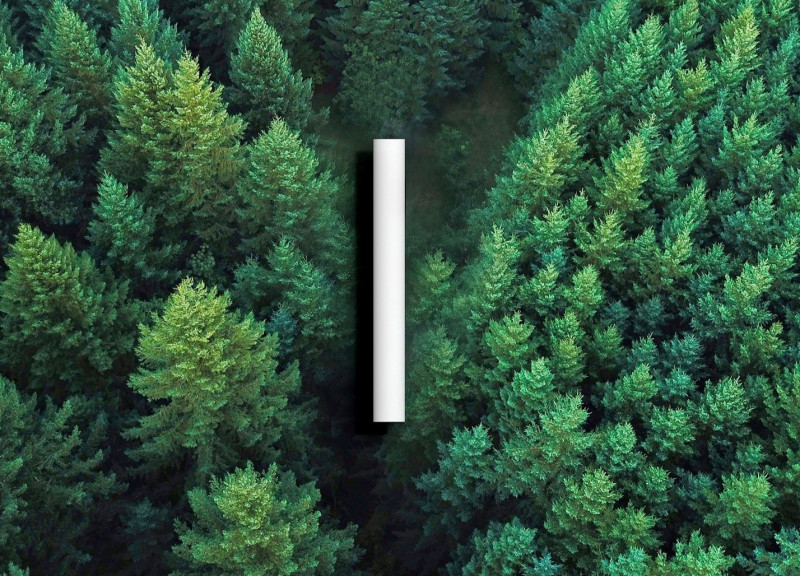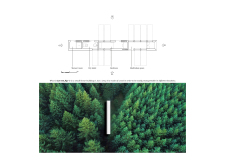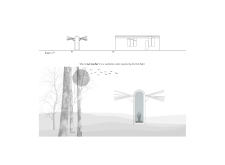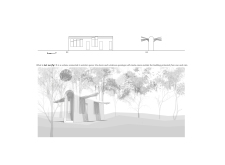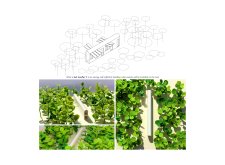5 key facts about this project
"Let Me Fly" is an architectural design that focuses on compact living through a linear structure measuring 1.3 by 11.3 meters. The transportable meditation cabin is designed to function in a variety of locations, providing both mobility and adaptability. It aims to create a connection with nature while offering essential living spaces for individuals seeking peace and reflection.
Spatial Organization
The interior layout includes a shower room, dry toilet, bedroom, and meditation space. Each area is carefully designed to maximize its usefulness within limited dimensions. This thoughtful arrangement ensures that the essential needs of the occupants are met. Users can find comfort and functionality in a compact form.
Integration with Nature
The design draws inspiration from the flight of birds. This influence shapes the building's form and encourages a deeper connection with the surrounding environment. The presence of doors and windows creates sheltered outdoor areas that protect from sun and rain. These features provide a smooth transition between indoor and outdoor spaces, allowing occupants to enjoy nature more fully.
Sustainability Considerations
Sustainability is an important aspect of the design, with the building classified as energy self-sufficient. Solar panels installed on the roof enable the use of renewable energy, supporting eco-friendly living. This approach aligns the project with current environmental goals and reflects a commitment to responsible design practices.
Materiality
Wood is the primary material used in the structure, contributing to its lightweight and portable nature. This choice enhances the overall aesthetic of the building and adds warmth to the interior. The use of wood complements the project's goal of fostering a harmonious relationship between the built environment and the natural world.
The design incorporates carefully positioned openings, allowing natural light and ventilation to fill the spaces. This enhances the overall sense of openness and tranquility, providing an inviting atmosphere for occupants.


